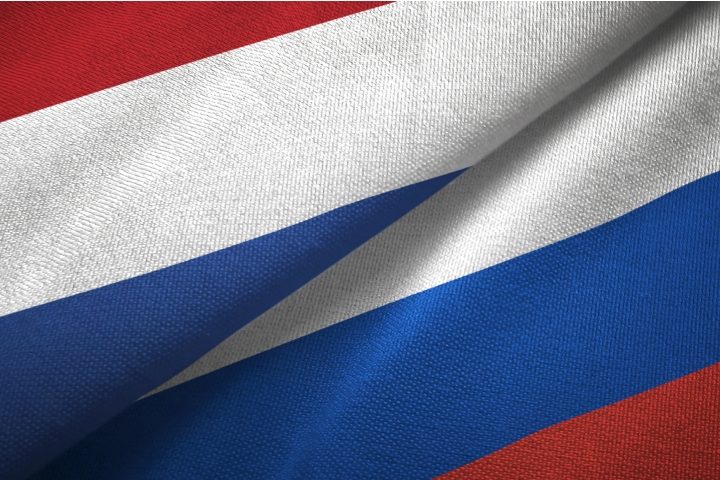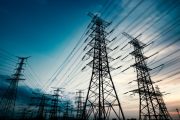
The Netherlands should urgently gear up to face an “increasingly assertive” Russia, the nation’s Land Forces commander, Lieutenant General Martin Wijnen, said on December 28. Hence, the country should boost its military and help society adapt to the potential hardships of war, he continued.
Moreover, Wijnen alleged that apart from Ukraine, Moscow harbored designs on the Baltic States of Estonia, Latvia, and Lithuania, three former Soviet republics that have joined NATO and the EU.
“The Netherlands should not think that [its] safety is guaranteed just because we are 1,500 kilometers away,” the army chief cautioned, adding that “Russia is getting stronger.”
Besides, Wijnen told De Telegraaf newspaper that the Netherlands “must work on [its] operational readiness, ensure that we have enough deterrence to deprive any adversary of the courage to [attack] us.”
He also added that “there is only one language that Russia understands,” and that is the one “of robust Armed Forces.”
The general, who has led the Royal Netherlands Army since 2019, also characterized the Dutch military as “crippled by budget cuts,” as per reports by De Telegraaf. The Netherlands, which abolished conscription back in 1997, is currently facing a “glaring personnel shortage,” the paper said.
Wijnen also talked about the importance of bolstering his country’s army, warning that it could not afford to incur any battle casualties.
“If we start to suffer losses, who will replenish them?” the general questioned. “We used to have options for that, but not anymore,” he added, pointing out that the Dutch would not get a choice on whether to fight in case of an “imposed conflict.”
“The Netherlands must learn again that the entire society must be ready when things go wrong,” Wijnen said.
Although such remarks do not imply that everyone would have to “wear a helmet tomorrow,” the Dutch people have become “too accustomed to the idea that there is always peace,” the army chief elaborated.
At the moment, the Dutch military is organizing a campaign called “service year,” which spurs young people to enlist in the army voluntarily for 12 months. According to Wijnen, this notion has supposedly been a huge success, though he acknowledged that only around 600 people joined the program this year, when “that should be between two and three thousand.”
Wijnen also called on Dutch society to bolster its “resilience,” storing “supplies, food and drinking water” in basements so it could “take the blow” when the time comes. Dutch firms should also be ready to cater to the needs of the military if the need arises, he added.
The Netherlands has been one of the most vocal supporters of the Kyiv regime in the latter’s ongoing conflict with Moscow. The EU state was one of the few countries to promise the transfer of U.S.-made F-16 fighter jets to Ukraine. In November, Amsterdam deployed five F-16 fighter jets to the European F-16 Training Center in Romania, where Ukrainian pilots are being trained to fly the American-made warplane. Overall, the Netherlands said it plans to commit 12-18 jets to train Kyiv’s pilots as part of its military aid.
Last year, Dutch Prime Minister Mark Rutte announced that his government had begun preparations for the delivery of the first 18 planes to Kyiv.
In December last year, Geert Wilders, leader of the Dutch conservative Party for Freedom (PVV), declared that the Netherlands should not deploy more military aid to Kyiv if such actions leave the Dutch military unable to defend the country.
Wilders’ statements came as Ukrainian President Volodymyr Zelensky was in the United States campaigning for more military funding, while a €50 billion aid package was stalled in the EU.
“We believe we shouldn’t give military support to Ukraine while we are unable to defend our own country,” the Dutch lawmaker stated in a parliamentary debate.
In a shock victory, Wilders’ PVV party won a plurality in the country’s parliament in November 2023, obtaining 37 seats out of 150.
Two of Wilders’ potential coalition partners, the center-right New Social Contract (NSC) and the Farmer-Citizen Movement, have also voiced doubts about funding Ukraine’s military efforts and its potential accession to the EU, Bloomberg reported.
Even Zelensky admitted that Kyiv’s counteroffensive did not attain its “desired results.”
In nearby Hungary, Prime Minister Viktor Orbán employed his right of veto to block a €50 billion European Commission aid package for Ukraine. The Hungarian leader said he would not back the package until Budapest obtains funds from the EU that are being withheld from Hungary. During a recent radio interview, Slovakia’s new government also declined to send more military aid to Kiev.
Washington, on its end, is pressuring Ukraine to adopt a more defensive military strategy for a “tighter budget,” according to a report by The New York Times. The United States, which is thus far Ukraine’s largest single military aid donor, has long been hesitant to provide Ukraine with Western-made fighter jets. Washington only gave the green light for Ukrainian pilots to train on F-16s and indicated that it was ready to authorize a third-party transfer of the aircraft to Kyiv in the summer of 2023, highlighting that the training should be completed first.
Additionally, U.S. Senate Republicans recently blocked a further $60 billion in funding to Kyiv, insisting that more stringent border controls along the U.S.-Mexico border be put in place first.
Russia, for its part, has constantly cautioned that persistent military aid from the United States and its allies to Kyiv make them de facto parties to its conflict with Ukraine and increase the risk of a direct clash between Russia and the U.S.-led military bloc.
During a national Q&A session in December, Russian President Vladimir Putin commented that Russian troops “are improving their positions” along the entire front line. Earlier in December, Russian Defense Minister Sergey Shoigu estimated Kyiv’s losses at over 125,000 troops since the start of Ukraine’s counteroffensive in June.
In his yearly New Year’s address on December 31, Putin pointed out his country’s achievements in 2023, adding that it was particularly strong in defense of its interests and values.
“You are our heroes,” Putin said on December 31 to the Russian armed forces, adding that the country was proud of its troops, who should feel assured of the “sincere support of millions of Russian citizens, of the whole nation.”


